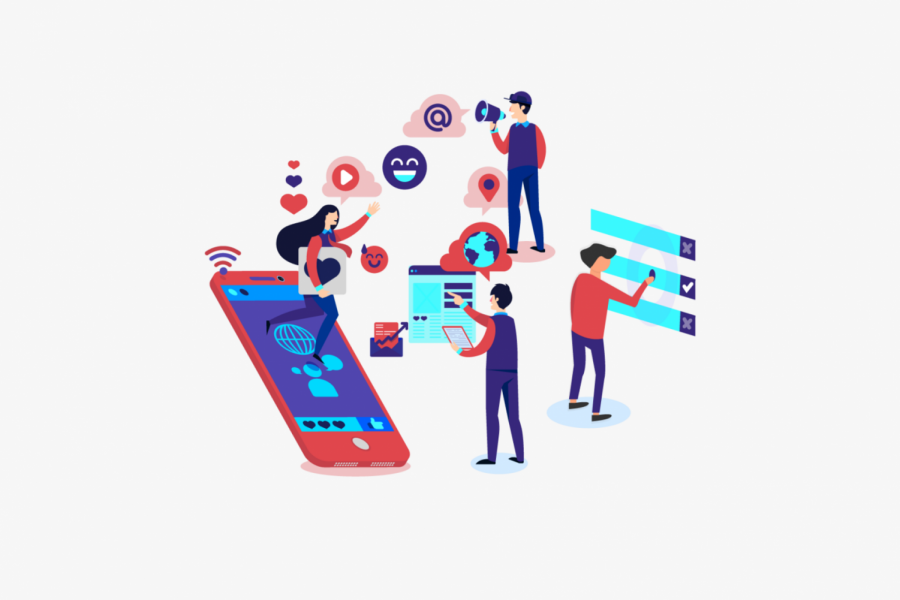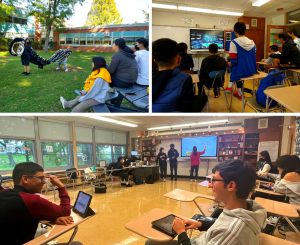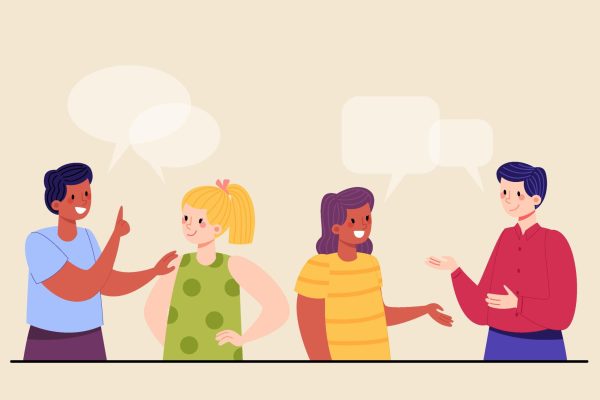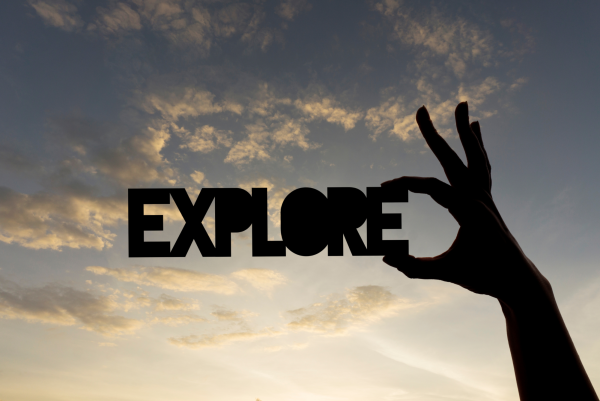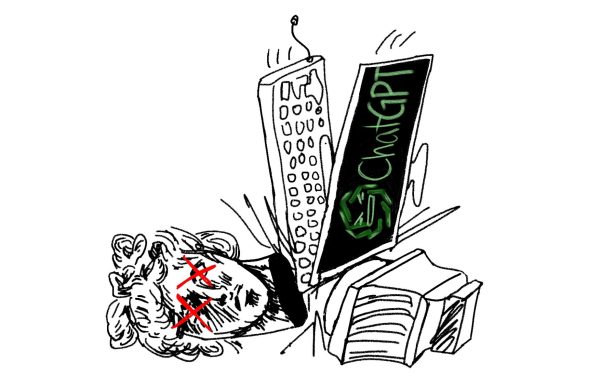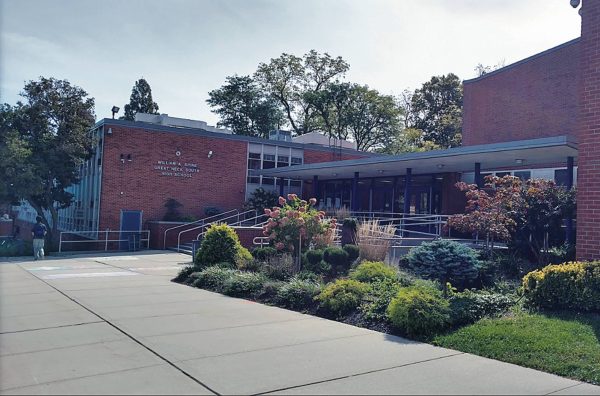Escape the Echo Chamber
June 12, 2021
3.48 billion people from all corners of the world and all walks of life gather in one place: social media. Social media connects humanity. It’s a place where stories are told and heard, where friendships are formed, where laughter is found, and where movements are sparked.
Social media is also where 68% of people find their news. The news people consume is important: it shapes the way they see and understand the world and in turn, shapes the way that people lead their lives. News and journalism are designed to inform the public, but social media is designed around commercial interests with the goal of boosting financial profits. Social media companies strive to keep users engaged with their screens for as long as possible because the longer people are engaged with their screens, the more money social media companies earn from advertising. So, how do companies keep their users’ eyes glued to their screens? They use social media users’ own psychology against them.
Confirmation bias is at the root of why people are drawn to social media: it’s the human tendency in all of us to seek and remember information that reaffirms and validates our existing beliefs. Twitter identifies trending topics, YouTube recommends videos, and Facebook designs its news feeds based on algorithms that hold our attention by playing into our confirmation bias. Algorithms monitor users’ behavior to gather data on what content they find interesting and engaging and then flood them with the content that they’re most likely going to engage with.
Essentially, social media uses algorithms to feed people content that reinforces their interests rather than content that gives them information from multiple viewpoints that actually matches reality. When people look at their social media feeds, they’re seeing a whole lot of content with similar agreeable themes and ideas. The real world doesn’t look like that: it’s filled with diverse, complex, and often contradictory viewpoints and ideas. But on your social media feed, it’s almost like these conflicting ideas don’t exist. This results in the false consensus effect, which is the human tendency for people to overestimate how appropriate and commonly held their beliefs are. When people are only consuming content that comes from one perspective, they aren’t making themselves more informed and educated: they’re simply trapping themselves deeper and deeper into their existing ideology. When people evaluate every new piece of information they encounter through the lens of whether it confirms what they already believe rather than evaluating it based on its merit and accuracy, there’s little room for people to escape their warped view of reality to discover truth and new ideas.
Since algorithms aim to keep users engaged, they usually aren’t promoting content that gives well-reasoned explanations about complex issues. Instead, they are promoting content that will elicit reactions: content that is sensational, outrageous, oversimplified, and inflammatory. In the real world, there aren’t actually that many people who hold extreme beliefs, but on social media, the most extreme beliefs are the most amplified and most visible. Because of this, people end up radicalized and polarized. People believe the content they consume online, and when algorithms flood users with content that is over dramatic and oversimplified, people begin to adopt extreme ways of viewing issues through a black and white lens. Then, when people are exposed to a perspective that they aren’t usually exposed to (ex: a Republican is exposed to a Democrat’s perspective), they’re exposed to the most extreme voices, not the voices that most represent people’s views. People adopt an inaccurate view that the group of people they disagree with are more radical than they actually are, resulting in more hatred and opposition towards people with different beliefs. In reality, people’s beliefs haven’t actually shifted in the past decades, but polarization between political parties has surged, in large part due to social media. A paper published in Science magazine found that today, people hate the opposing political party more than they like their own and are more likely to consider the opposing party to be to be “different,” “dislikable,” and “immoral.” This results in political sectarianism, where people’s party identity is more important than policy or common ground. Today, we live in a world where people not only disagree with the other side, but actively hate them.
The fact that algorithms expose social media users to information that legitimizes and radicalizes their beliefs, coupled with the fact that fake news spreads six times faster than real news on social media, means that people can be living side-by-side yet can be operating in different realities with their own individual facts that are reinforced on a daily basis. The shared sense of reality that underpins society is eroded. But this isn’t just some abstract concept that exists only in people’s minds: it can have real and dangerous effects on events that unfold in the real world.
January 6th, 2021, will go down as one of the darkest days in American history. Hundreds of insurrectionists stormed the US Capitol building in an attempt to stop the certification of electoral college votes and break the sacred transition of the peaceful transfer of power. Why? The rioters firmly believed that the 2020 election was “stolen” from Donald Trump by democrats. But there was no evidence of widespread voter fraud whatsoever. Trump had filed 86 lawsuits to contest the election and voting processes, and every single one was thrown out. There were recounts and election audits to verify the accuracy of the results, and one result remained certain: Joe Biden won the 2020 election. Still, people held the belief that Trump won so strongly that they were willing to risk their lives to storm the capitol and fight against the democratic process. And that probably wouldn’t have happened had it not been for social media echo chambers. Trump supporters were fed misinformation and outrageous rhetoric (often from the President himself) over and over again, forming realities in which Trump was the true winner of the 2020 election; meanwhile, the biggest fraud in history was taking place right in front of their eyes. So to them, anything was justifiable, including breaching the capitol, killing five people, and injuring many more. January 6th is proof that social media has the power to threaten American democracy.
In order to have a well functioning democracy, people need to at the very least have a shared sense of reality. For people to truly be informed and educated, they need to be able to learn about and understand diverse perspectives and evaluate ideas critically. Only then can we improve ourselves and our ways of thinking, be inclusive to diverse perspectives, truly understand issues, and work together to make progress. This starts with the media you consume. I don’t expect people to deactivate their social media accounts, but it’s essential that its users are aware of how social media works so that they can actually be informed. Yes, algorithms are probably going to keep playing into your confirmation bias. But you can challenge the algorithm by actively and deliberately seeking out information and viewpoints that you disagree with. Whether you like it or not, there are certainly people that disagree with you and ideas that conflict with yours. When you make an effort to actually understand those perspectives, you might actually change your own and end up breaking out of old ways of thinking. But at the very least, you’ll be able to understand another point of view. You can avoid misinformation and oversimplification when you question and critically think about every idea that you encounter. It’s satisfying to agree with ideas simply because they prove you right, but it’s also damaging to your worldview. When you question and critically think about every idea, no matter which perspective it comes from, you can break free from your pre-existing biases and ideology to arrive at the truth. The news you consume and the words you speak affect your beliefs, your actions, and ultimately, who you are. You have the choice to either confirm your own existing beliefs or seek the truth, no matter how uncomfortable it may be.
What choice will you make?

